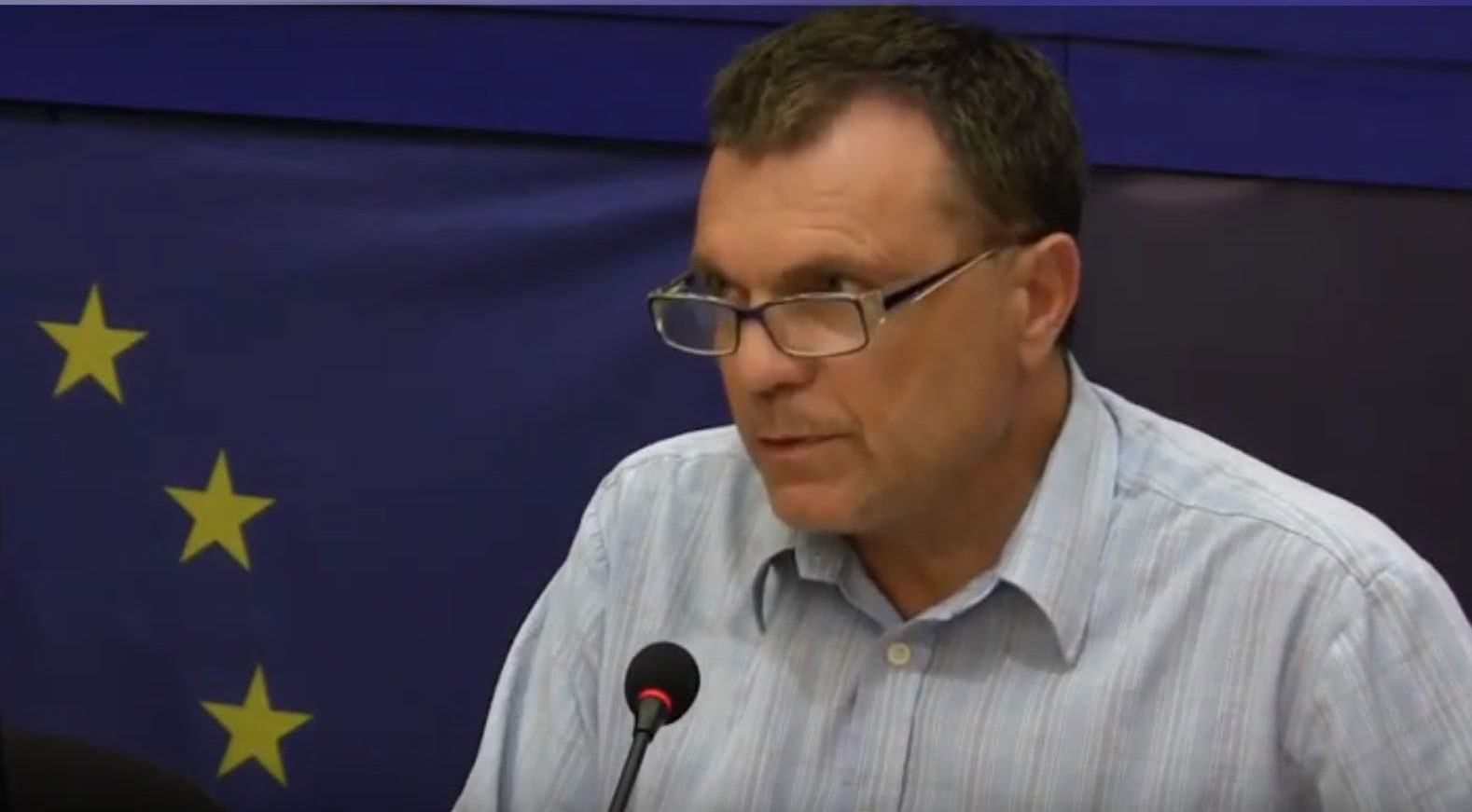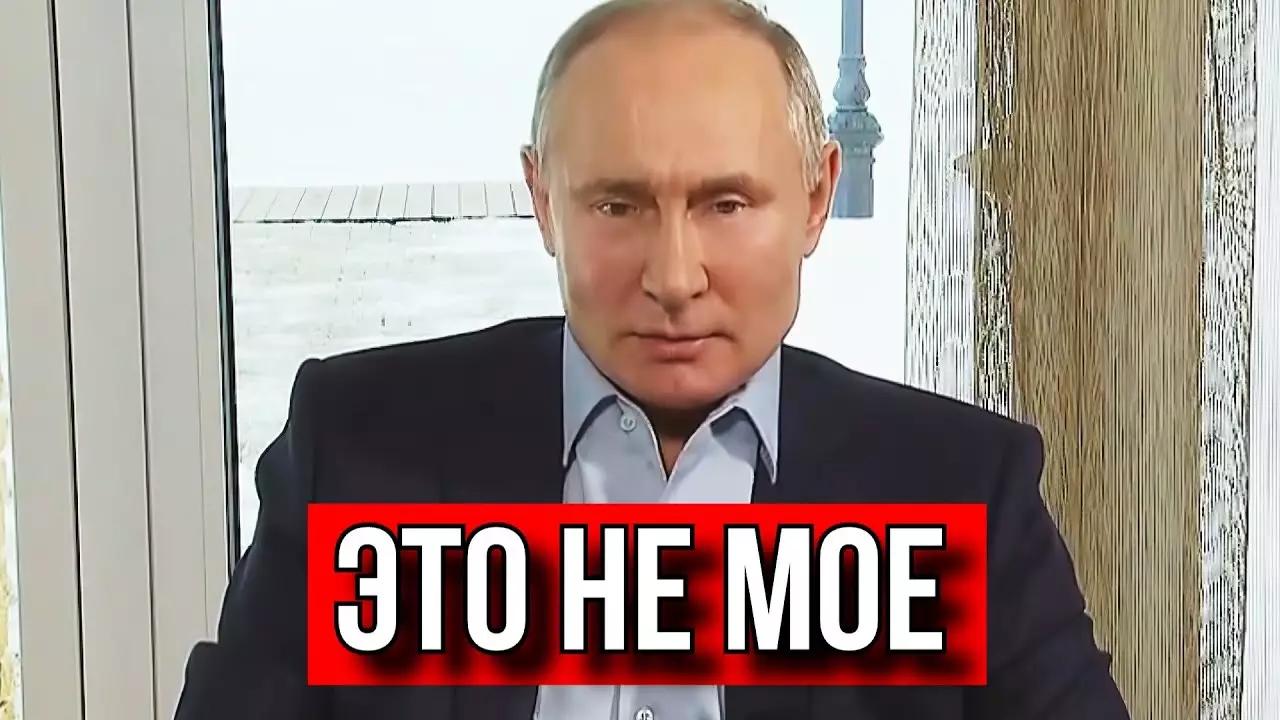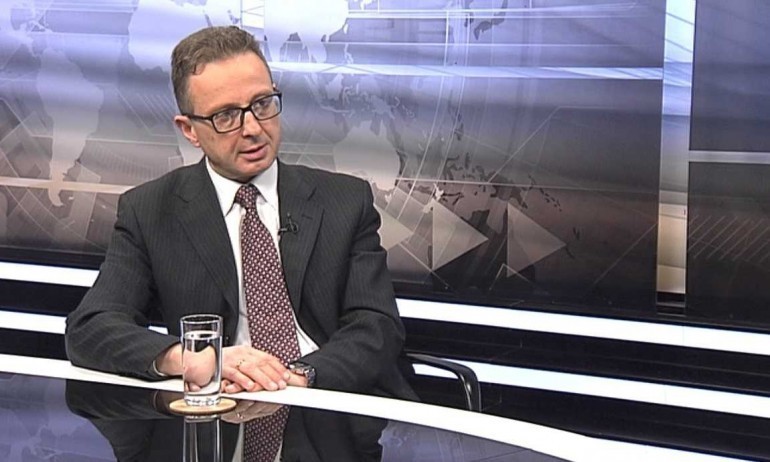
Russia’s president Vladimir Putin will fall from power when another cataclysmic event reveals to his supporters among Russia’s rich and corrupt oligarchs that the emperor has no clothes, that his credibility as the country’s authoritarian leader is exhausted. This was the conclusion of several groups of senior Russian strategists convened in 2016 for The Jamestown Foundation’s “Russia in Decline” project. What might such a cataclysmic event be? Most of the strategists pointed to either “another Kursk,” referring to unexplained accident that sank Russia’s nuclear submarine in the Barents Sea in 2000 killing all 118 sailors, or a major military defeat.
Imagine the Russian leader’s skimpy wardrobe in the aftermath of the horrific Syrian regime’s gas attacks on civilians, apparently with Russia’s sanction or support, which bears the hallmarks of both cataclysm and defeat for Mr. Putin. Having assured the world that Syria’s chemical weapons stock had been eliminated in the 2013 deal that rescued President Obama from strategy obloquy for caving on his own “red line,” Mr. Putin’s promise has been shown for the fiction it was. Russia’s standing as a “great power” capable of brokering such a deal has collapsed with it. Putin has rushed to defend the regime of Bashar al-Assad in the aftermath of the sarin bombs, effectively aligning Russia with the attack despite making easily disprovable claims that the Americans caused it by targeting Syrian toxic gas-producing workshops. These claims only deepens Russia’s perfidy and heightens its disgrace.
This humanitarian disgrace will affect Russia wherever sensible people pay attention. Think of poor Marine Le Pen, whose campaign for the French presidency Putin reportedly has financed. It’s hard to imagine even France’s hard right cozying up to graphic images of Syrian children asphyxiating from the sarin’s effects, knowing that Russia is handmaiden to this atrocity. Russia’s other advocates in Europe now must reconcile Moscow’s sanctioned atrocities with their persistent loud assertions of Europe’s superior civilizational values. Russia’s influence and subversion campaigns in the Balkans—Bulgaria, Serbia, Montenegro—in the Baltic States, and wherever Russia seeks to shape the political landscape to its advantage will require serious recalibration, if they can survive at all.
Russia’s public military setback is equally humiliating, according to many experts, especially after all the regime’s assurances that Russia’s missilery was impenetrable.. „I would like to remind the American ‘strategists’ that the air defense of the Russian military bases [in Syria] is guaranteed by the missile defense systems S-400 and S-300,” predicted General Igor Konashenkov, head of public relations for the Russian ministry of defense. The effective radius of this missile system, he proclaimed, was sufficiently wide to “surprise” any intruders, causing their efforts to “collide with a disappointing reality.” Apparently not so.
Bulgaria’s former ambassador to Moscow Ilian Vassiliev details the compromised honor of Russia’s vaunted state-of-the-art S-400 and S-300 air defense systems in his Bulgaria Analytica blog. Russia has marketed these purported high-tech marvels as capable of deterring and destroying American or Israeli cruise missiles like those that obliterated Assad’s al-Shayrat air force base. The Russian system was advertised to cover most of Syria, Lebanon, as well as parts of Israel and Turkey. At the very least, “the S-400 should cover substantial chunks of the Mediterranean from which the two US Navy frigates launched the Tomahawk missiles, as well the entire flight track on Syrian territory to the al-Shayat air base.” Russia’s promise that it would protect Assad in exchange for Russian military bases on Syrian territory now has proved empty.
To explain why its S-400s remained mute against the Tomahawk attack, Russian media redefined the missiles’ capabilities. “Moscow’s media strategists conveniently shortened the operations range of both systems to one tenth of their original reach,” notes Vassiliev. The Tomahawks bypassed these abbreviated operational zones, which is why no Russian effort to intercept the American cruise missiles occurred. This explanation is unlikely to satisfy Moscow’s other customers, like Iran, which took delivery of $900 million worth of S-300s from Russia in 2016 and has expressed strong interest in upgrading it air defense systems with S-400s.
If foreign customers are now unnerved about Russia’s technological prowess, Russians themselves are increasingly edgy. Social media networks erupted with concern and frequently sarcasm on news of the Tomahawk strikes and Russia’s non-response. “Am I the only one who doesn’t understand why our S-400s…didn’t shoot down the American rockets?” asked a Twitter user, reported by Radio Free Europe/Radio Liberty. “Where the hell were the vaunted S-400s?” “Listen, I just want to check – s Moscow also secured by S-300 and S-400s?” tweeted another.
The kindest explanation for Russian inaction is their choice not to use their missile killers. After all, Russia was informed of the strike in advance. Presumably Mr. Putin had time to order the Tomahawks shot down, assuming that the capability exists as advertised, and decided that discretion was in order. This would mean that Mr. Putin fears confrontation with America more than he fears infamy or opprobrium for Russia’s complicity with Bashar al-Assad. Yet this seems unlikely, given that the damage to Russia’s image as somehow sanctioning the sarin attack could not be erased in any case.
A less charitable explanation is that the technology wasn’t up to the task. Historian Harley Balzer’s unsentimental portrait for the Jamestown project of Russia’s demise as a “knowledge society” suggests much deeper pathologies. Consequences of disintegrating technological knowledge for the military are profound, notes Balzer, with Russia very much on its back foot. For example, “in the crucial area of electronics, a persistent Russian bottleneck, the situation is quite tenuous. Data indicate that 65–79 percent of the electronics used in Russian missiles and space rockets are imported.”
Is Mr. Putin endangered by Russians’ failure to live up to their bravado as a resurgent global power, technological competitor, and a reliable ally? Probably. At least his position has been eroded substantially, making the next “cataclysmic event” more likely to trigger his fall. None of these explanations is calculated to enhance Mr. Putin’s stature as Russia’s leader; rather the opposite. One hopes that thinking seriously about a post-Putin world is well advanced in our intelligence agencies and among defense and national security planners, for like so much that happens with Russia, it is likely to be upon us suddenly.
Mr. Wimbush is Distinguished Senior Fellow at The Jamestown Foundation









